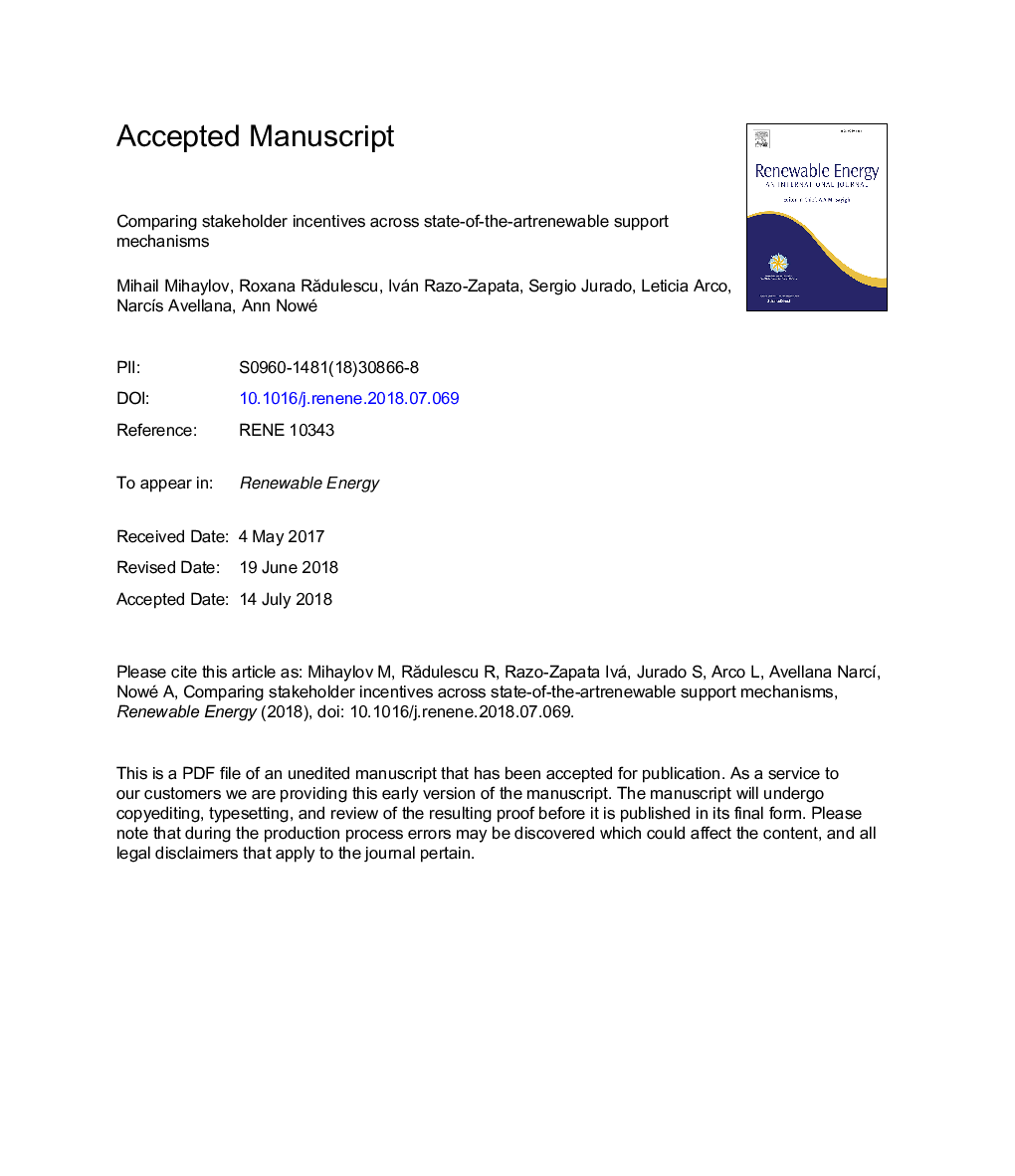| Article ID | Journal | Published Year | Pages | File Type |
|---|---|---|---|---|
| 6763673 | Renewable Energy | 2019 | 34 Pages |
Abstract
Traditional support policies for green energy have greatly contributed to the rise in prosumer numbers. However, it is believed that they will soon start to exert negative impact on stakeholders and on the grid. Policy makers advise to phase out two of the most widely applied policies - net metering and feed-in tariff, in favor of support policies that scale better with rising renewable generation. This work quantifies the impact of these traditional policies in future “what-if” scenarios and confirms the need for their replacement. Based on simulations with real data, we compare net metering and feed-in tariff to four state-of-the-art market-based mechanisms, which involve auction, negotiation and bitcoin-like currency. The paper examines the extent to which each of these mechanisms motivates not only green energy production but also its consumption. The properties and characteristics of the above mechanisms are evaluated from the perspective of key stakeholders in the low voltage grid - prosumers, consumers and energy providers. The outcome of this study sheds light on current and future issues that are relevant for policy makers in the evolving landscape of the smart grid.
Related Topics
Physical Sciences and Engineering
Energy
Renewable Energy, Sustainability and the Environment
Authors
Mihail Mihaylov, Roxana RÄdulescu, Iván Razo-Zapata, Sergio Jurado, Leticia Arco, NarcÃs Avellana, Ann Nowé,
